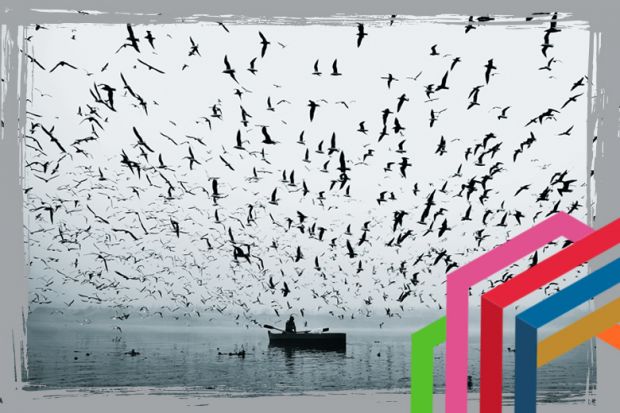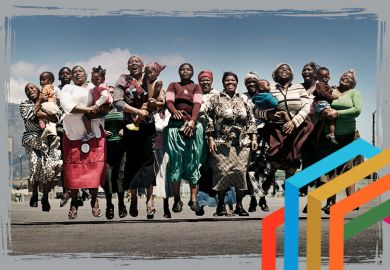Browse the full results of the Impact Rankings 2024
Participate in next year’s Impact Rankings
One of the virtues of the Times Higher Education Impact Rankings is its recognition of the differing missions and strengths of universities.
While it uses the United Nations’ 17 Sustainable Development Goals as a framework, institutions do not need to submit data against all the goals to be included. They need to provide information on only one SDG to join the exercise, and four SDGs (including SDG 17) to be ranked in the overall table – meaning that different universities are scored based on a different set of SDGs, depending on their focus.
In this way, these rankings celebrate diversity, recognising that there is not one single definition of excellence and that it is the collective strength of the global higher education sector that will help to build a more sustainable, collaborative and global future.
This year’s results show that some university systems are emerging as leaders when it comes to particular SDGs. The UK, for example, is home to several top performers for responsible consumption and production (SDG 12), while South Korea is particularly active when it comes to decent work and economic growth (SDG 8). Our analysis explores the strategies behind the success of some of those beacons of excellence.
But the 17 SDGs are just one way in which the focus of universities differs when it comes to making an impact. Another way is the types of activities at institutions.
Traditionally, when one thinks of the work of universities, it is their research and teaching that first come to mind. Both of those areas are examined in the Impact Rankings, but we also measure stewardship – how universities steer their own ships in terms of sustainability – and outreach – the work that universities do with their local, regional, national and international communities.
This year, our data scientists have conducted a new analysis, exploring how performance compares across those four different pillars, at the continent, country and university levels.
There are unsung heroes that are not recognised by traditional research metrics, but are walking the talk on sustainability when it comes to their own operations and community partnerships. There are also institutions that are renowned for their research prowess but still have a long way to go when it comes to getting their own houses in order.
A Nigerian university comes out top globally for both outreach and stewardship, reflecting a broader trend of African universities rising significantly in representation and in performance in the rankings.
There has been rapid growth elsewhere, too, with 2,152 universities from 125 countries/regions featuring in this year’s tables. India is now the most-represented nation, followed closely by Turkey and Pakistan.
We are delighted that we can showcase the vital work of all these universities in these rankings, and the diverse ways that they are delivering transformational impact.
ellie.bothwell@timeshighereducation.com
Countries/regions represented in the overall Impact Rankings 2024
|
Country/region |
Number of institutions |
Top institution |
Rank |
|
India |
96 |
=81 |
|
|
Turkey |
91 |
34 |
|
|
Pakistan |
89 |
201-300 |
|
|
|
|
Khwaja Fareed University of Engineering and Information Technology |
201-300 |
|
Russian Federation |
79 |
Peter the Great St Petersburg Polytechnic University |
201-300 |
|
|
|
201-300 |
|
|
Thailand |
77 |
=19 |
|
|
Japan |
74 |
=72 |
|
|
Iraq |
71 |
401-600 |
|
|
United Kingdom |
68 |
=2 |
|
|
Philippines |
56 |
201-300 |
|
|
Brazil |
55 |
101-200 |
|
|
Algeria |
54 |
401-600 |
|
|
Uzbekistan |
53 |
Alisher Navo’i Tashkent State University of Uzbek Language and Literature |
301-400 |
|
Spain |
52 |
101-200 |
|
|
|
|
101-200 |
|
|
|
|
101-200 |
|
|
|
|
101-200 |
|
|
|
|
101-200 |
|
|
|
|
101-200 |
|
|
Taiwan |
51 |
=25 |
|
|
Egypt |
46 |
201-300 |
|
|
|
|
201-300 |
|
|
United States |
46 |
9 |
|
|
Indonesia |
45 |
31 |
|
|
Ukraine |
42 |
201-300 |
|
|
France |
33 |
=21 |
|
|
Saudi Arabia |
32 |
=81 |
|
|
Iran |
29 |
401-600 |
|
|
|
|
401-600 |
|
|
|
|
401-600 |
|
|
Malaysia |
28 |
18 |
|
|
Colombia |
27 |
301-400 |
|
|
|
|
Pontifical Javeriana University |
301-400 |
|
Kazakhstan |
26 |
401-600 |
|
|
Nigeria |
26 |
101-200 |
|
|
Poland |
25 |
301-400 |
|
|
Canada |
24 |
6 |
|
|
South Korea |
24 |
11 |
|
|
Italy |
22 |
=67 |
|
|
Australia |
21 |
1 |
|
|
Chile |
21 |
201-300 |
|
|
|
|
201-300 |
|
|
|
|
201-300 |
|
|
Bangladesh |
19 |
301-400 |
|
|
Romania |
19 |
101-200 |
|
|
Greece |
18 |
201-300 |
|
|
Jordan |
18 |
201-300 |
|
|
Mexico |
18 |
64 |
|
|
Azerbaijan |
17 |
601-800 |
|
|
|
|
601-800 |
|
|
Portugal |
15 |
57 |
|
|
Ecuador |
14 |
201-300 |
|
|
Vietnam |
13 |
301-400 |
|
|
Morocco |
12 |
401-600 |
|
|
|
|
401-600 |
|
|
United Arab Emirates |
12 |
=92 |
|
|
Hungary |
11 |
301-400 |
|
|
|
|
301-400 |
|
|
Czechia |
10 |
201-300 |
|
|
South Africa |
10 |
=36 |
|
|
Ghana |
9 |
101-200 |
|
|
Lebanon |
9 |
201-300 |
|
|
|
|
201-300 |
|
|
Peru |
9 |
401-600 |
|
|
Turkmenistan |
9 |
Dovletmammet Azadi Turkmen National Institute of World Languages |
1,501+ |
|
|
|
Institute of Telecommunications and Informatics of Turkmenistan |
1,501+ |
|
|
|
1,501+ |
|
|
|
|
Oguz Han Engineering and Technology University of Turkmenistan |
1,501+ |
|
|
|
1,501+ |
|
|
|
|
1,501+ |
|
|
|
|
1,501+ |
|
|
|
|
1,501+ |
|
|
|
|
1,501+ |
|
|
Finland |
8 |
Lappeenranta-Lahti University of Technology LUT |
101-200 |
|
|
|
101-200 |
|
|
Germany |
8 |
101-200 |
|
|
|
|
101-200 |
|
|
Ireland |
8 |
47 |
|
|
New Zealand |
8 |
=13 |
|
|
Palestine |
7 |
201-300 |
|
|
Sri Lanka |
7 |
601-800 |
|
|
|
|
601-800 |
|
|
|
|
601-800 |
|
|
Switzerland |
7 |
201-300 |
|
|
Argentina |
6 |
201-300 |
|
|
Belarus |
6 |
Belarusian State University of Informatics and Radioelectronics |
1,001-1,500 |
|
|
|
1,001-1,500 |
|
|
China |
6 |
Southern University of Science and Technology (SUSTech) |
301-400 |
|
Lithuania |
6 |
601-800 |
|
|
|
|
601-800 |
|
|
Netherlands |
6 |
101-200 |
|
|
|
|
101-200 |
|
|
Tanzania |
6 |
801-1,000 |
|
|
Tunisia |
6 |
101-200 |
|
|
Belgium |
5 |
=67 |
|
|
Georgia |
5 |
801-1,000 |
|
|
Hong Kong |
5 |
=36 |
|
|
Kosovo |
5 |
1,001-1,500 |
|
|
Latvia |
5 |
201-300 |
|
|
Northern Cyprus |
5 |
301-400 |
|
|
|
|
301-400 |
|
|
Slovakia |
5 |
Comenius University in Bratislava |
601-800 |
|
Uganda |
5 |
601-800 |
|
|
Bulgaria |
4 |
401-600 |
|
|
Costa Rica |
4 |
401-600 |
|
|
|
|
401-600 |
|
|
Croatia |
4 |
201-300 |
|
|
Kuwait |
4 |
101-200 |
|
|
Oman |
4 |
801-1,000 |
|
|
Paraguay |
4 |
1,001-1,500 |
|
|
Somalia |
4 |
1,501+ |
|
|
|
|
1,501+ |
|
|
|
|
1,501+ |
|
|
|
|
1,501+ |
|
|
Syria |
4 |
Tishreen University |
801-1,000 |
|
Bahrain |
3 |
101-200 |
|
|
Cyprus |
3 |
201-300 |
|
|
Dominican Republic |
3 |
801-1,000 |
|
|
Kenya |
3 |
801-1,000 |
|
|
Macao |
3 |
301-400 |
|
|
Malawi |
3 |
801-1,000 |
|
|
|
|
801-1,000 |
|
|
Sweden |
3 |
=72 |
|
|
Afghanistan |
2 |
1,001-1,500 |
|
|
|
|
1,001-1,500 |
|
|
Angola |
2 |
1,501+ |
|
|
|
|
1,501+ |
|
|
Armenia |
2 |
1,001-1,500 |
|
|
Austria |
2 |
801-1,000 |
|
|
Bosnia and Herzegovina |
2 |
601-800 |
|
|
Brunei Darussalam |
2 |
801-1,000 |
|
|
Denmark |
2 |
4 |
|
|
Fiji |
2 |
601-800 |
|
|
Iceland |
2 |
201-300 |
|
|
Israel |
2 |
=95 |
|
|
Libya |
2 |
1,501+ |
|
|
|
|
1,501+ |
|
|
Mauritius |
2 |
1,001-1,500 |
|
|
|
|
1,001-1,500 |
|
|
Slovenia |
2 |
601-800 |
|
|
Sudan |
2 |
1,501+ |
|
|
|
|
1,501+ |
|
|
Venezuela |
2 |
801-1,000 |
Note: Table excludes countries with only one institution in the ranking.
Register to continue
Why register?
- Registration is free and only takes a moment
- Once registered, you can read 3 articles a month
- Sign up for our newsletter
Subscribe
Or subscribe for unlimited access to:
- Unlimited access to news, views, insights & reviews
- Digital editions
- Digital access to THE’s university and college rankings analysis
Already registered or a current subscriber?








